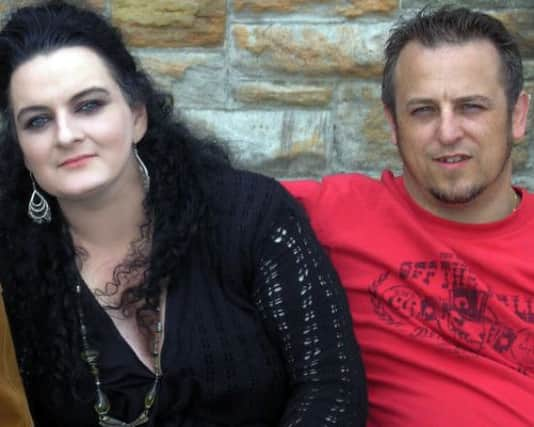Call for greater awareness about brain tumours


Rachel Clark, whose soldier husband, Shawn, died just months after his tumour was diagnosed, will lead a rally at the Scottish Parliament this week to call for greater awareness among doctors and the public about brain tumours.
She said lack of knowledge about tumours and their symptoms meant that by the time many people were diagnosed, nothing could be done to help.
Advertisement
Hide AdAdvertisement
Hide AdMrs Clark, from Livingston, also wants more funding for research into brain tumours, which she said were overlooked in the search for new treatments for other forms of the disease.
Unlike the majority of cancers, there has been little change in survival rates from brain tumours since the 1970s. This has been put down to patients being diagnosed late, often only when they turn up to hospital needing emergency treatment.
According to charity Brain Tumour Research, 16,000 people a year are diagnosed with a brain tumour in the UK and they are also the biggest cancer killer of children.
Mrs Clark said she wanted more action to make sure people were aware of the symptoms.
“We want them to start off with a big awareness campaign because early diagnosis is key. This would save lives, reduce long-term disability such as blindness, deafness, learning difficulties and mobility problems,” she said.
Mr Clark, who served in the Royal Artillery and the Royal Irish regiments, was told he had six to 12 months to live when he was diagnosed. But Mrs Clark said for many years he had been suffering symptoms, such as headaches, which they had put down to his part in conflict during his army years, but which his doctor agreed could have been signs of the tumour.
When Mr Clark went to A&E with what he thought was a trapped nerve in his leg he was offered physiotherapy. But when Mrs Clark said he had problems with his memory he was scanned and the tumour discovered. The 42-year-old died four months later in July 2011.
A Scottish Government spokesman said: “The £30 million Detect Cancer Early programme has been introduced to improve cancer survival rates.
Advertisement
Hide AdAdvertisement
Hide Ad“A range of information on catching – and therefore treating – brain tumours early is available through NHS Inform and we will continue to work with stakeholders and the NHS on making further improvements to diagnosis and care.”